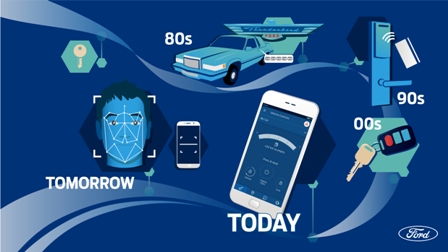The idea that you could one day open your car with a button on a pocket-sized computer would have been pure science fiction for people in the sixties.
Today, that life is a reality. A driver can now unlock his or her car, start the engine, and turn on the heating or air-conditioning using only their phone and an app.
Features like this felt like distant dreams only a couple of decades ago. “Technology and big data is helping us radically re-imagine the customer experience like never before,” said Andy Hoang, regional marketing integration manager for FordPass, Ford’s owner mobility app. “Increasingly personalized experiences are becoming the norm — something a physical key could never unlock.”
Aside from fun features like remote engine start, Hoang and his team are also trying to take some of the tedium out of owning a car. Take the dreaded car service for example: In FordPass you can book a service and arrange pickup and drop-off too. “We’re constantly exploring ways we can harness the digital world to make the experience of owning a car more responsive and pleasurable,” said Hoang.
All this is a far cry from the humble old key – an item which may soon become a relic of our past lives.
For thousands of years the basic design of keys didn’t change. But by last century, experimentation was laying the groundwork for the advancements we see today.
The key as a system worked so well that it took until 1975 for someone to re-think it and create the first electronic keycard. Then in 1980, Ford introduced the first ever keyless entry system on the Thunderbird. But it doesn’t always pay to be ahead of the curve – both these systems had to wait decades before they were widely adopted. More recently in China, Ford introduced Air Purge – a feature triggered by unlocking a car with a key fob that introduces a burst of outside air into the cabin and removes the fusty old air that can build up when a car is not being used.
Door cards, key fobs and keyless remotes have paved the way for mobile apps to disrupt the concept of keys once more. With new smartphone apps like FordPass, the car key becomes almost obsolete, and drivers have more power at their fingertips than seemed possible only a decade or so ago. As app-based systems become the norm then, what’s the next stage in the evolution of the key?
It could be your face.
Biometric technologies that use our unique physical characteristics as identification are already available on phones through facial scanning and fingerprint readers. As these systems improve, a world in which only you can access your belongings becomes a reality.
But while the potential of emerging technologies is exciting, Hoang and the FordPass team are creating features that deliver exciting benefits to users today.




